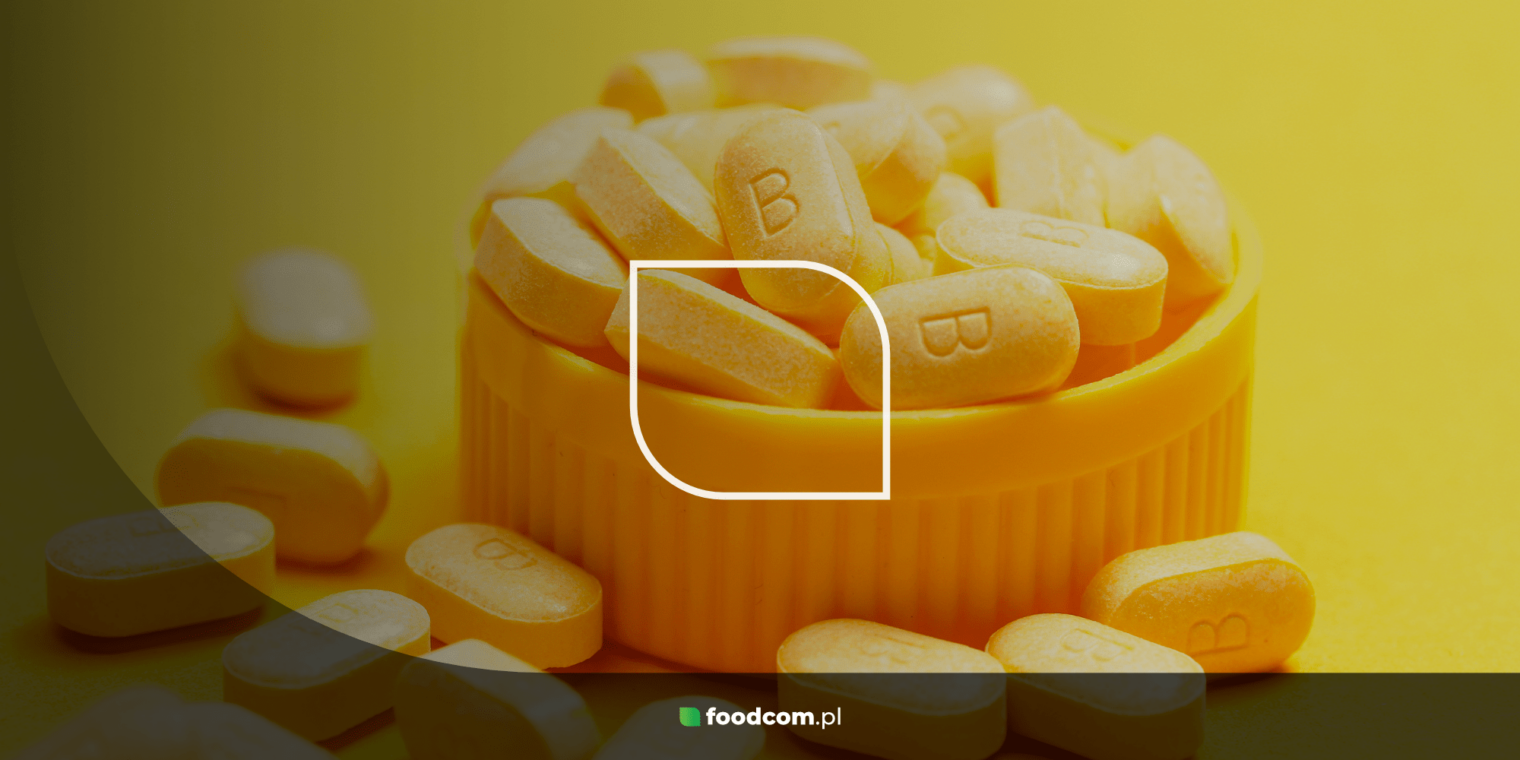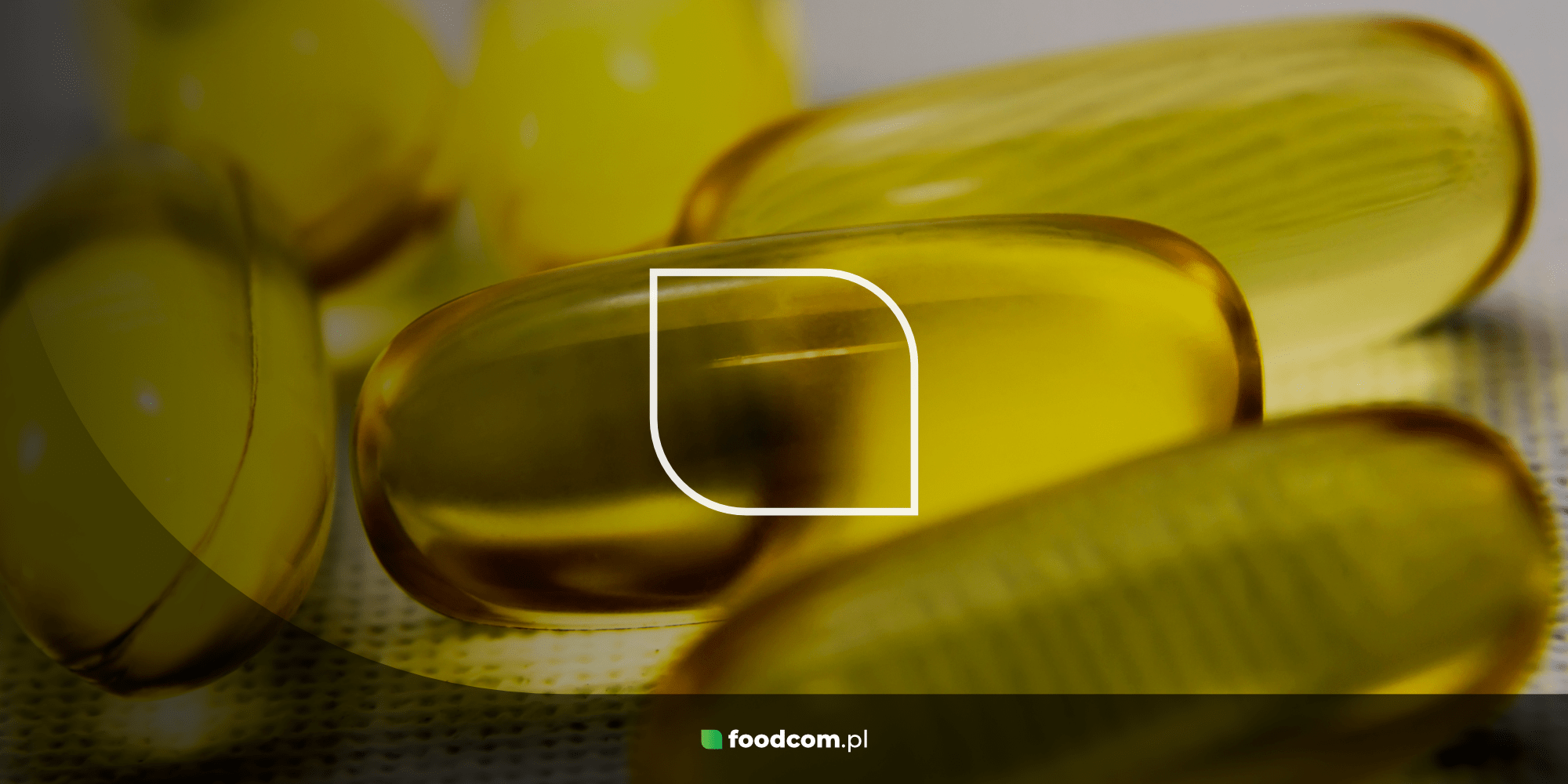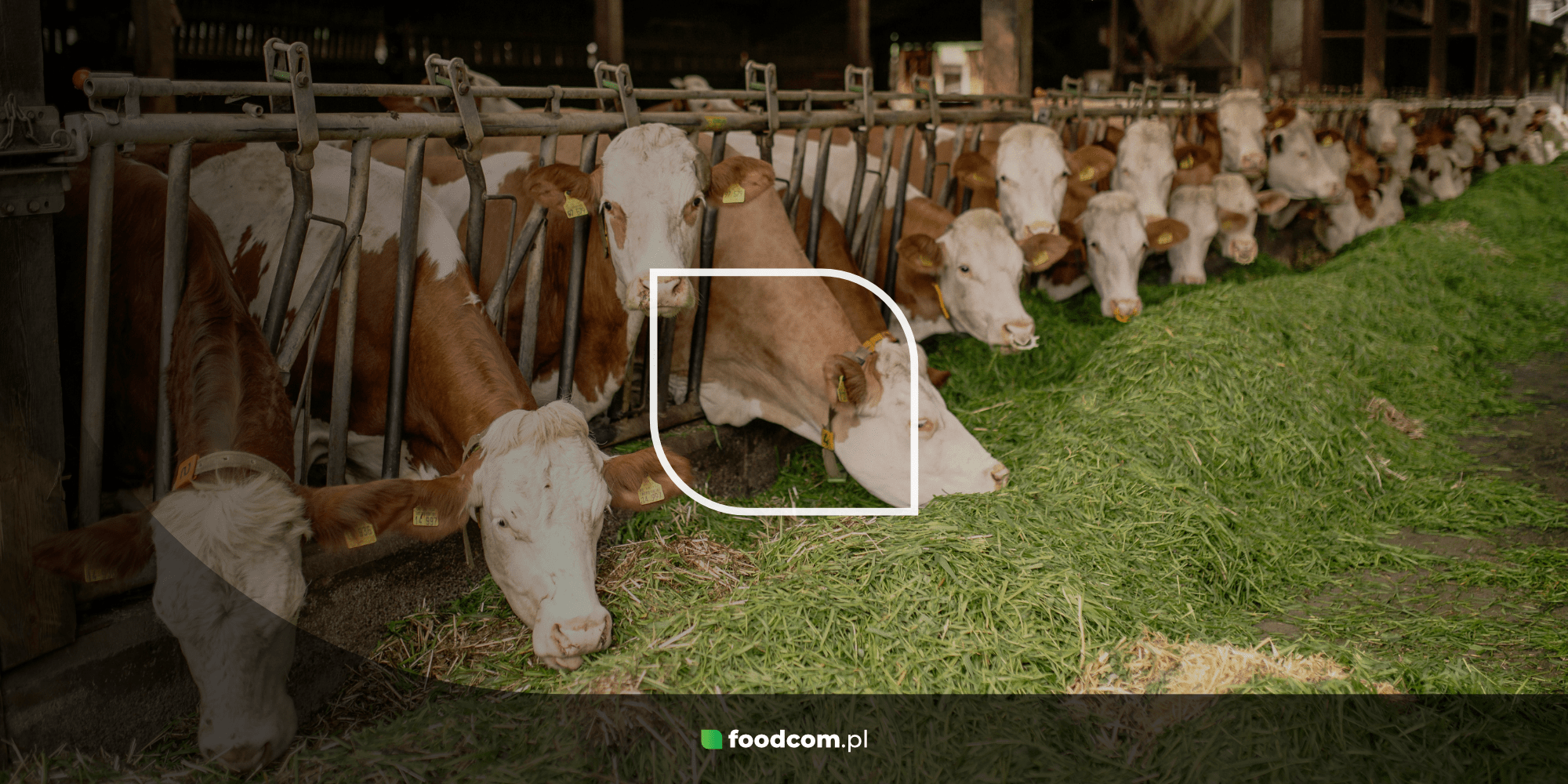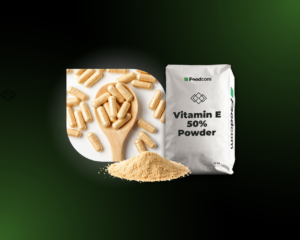- Vitamin B2 (riboflavin) is a key nutrient that supports energy metabolism and proper functioning of the body.
- Riboflavin is important in the feed industry, where it affects the health and efficiency of livestock, pets and fish.
- Vitamin B2 supports energy production, improves animal condition and increases the profitability of livestock.
- Foodcom S.A. supplies high-quality vitamin B2 and feed additives that improve animal health and production efficiency.
Vitamin B2, also known as riboflavin, is one of the most important nutrients in animal and human bodies. It is part of the coenzymes involved in energy metabolism and is therefore responsible for the proper functioning of cells. In the feed industry, vitamin B2 also plays a fundamental role, both in the production of feed and in the healthy nutrition of livestock, pets and fish.
What is vitamin B2?
Vitamin B2, or riboflavin, is a water-soluble B vitamin that has important functions in the body’s energy metabolism. This organic chemical compound is a combination of ribitol and flavin. It has a characteristic yellow colour, which is why it is used as a food colouring (E101). Riboflavin is susceptible to light and alkaline environments, but is not destroyed by high temperatures, meaning that heat treatment processes for food do not result in its loss in the product.
What does the body need vitamin B2 for? First and foremost, for the production of two important coenzymes – flavinoadenine dinutdioxidase (FAD) and flavinomononucleotide (FMN). These substances are involved in important oxidation and reduction reactions that underpin the metabolism of carbohydrates, fats and proteins. Thanks to riboflavin, various metabolic processes can be effectively managed, resulting in adequate energy production and overall body condition.
What does this mean in practice? Vitamin B2 ensures the proper functioning of the nervous system, contributes to the maintenance of the normal condition of mucous membranes, erythrocytes and skin, and protects against the adverse effects of oxidative stress.
Properties of vitamin B2
Due to its valuable properties, riboflavin participates in the production of energy, ensuring the correct metabolism of nutrients such as carbohydrates, fats and proteins. In addition, it influences the absorption of other essential nutrients – amino acids, fatty acids, iron, zinc or calcium.
Its effect on the body is particularly important for livestock, where adequate supplementation of vitamin B2 in feed significantly improves their performance and health. Vitamin B2 also reduces the risk of growth disorders and improves physical condition, especially in domestic animals.
Use of vitamin B2 in the feed industry
Riboflavin is widely used in many areas, especially in feed production. It is used in dietary supplements, livestock feeds, pet foods and also in fish nutrition. It is used by feed manufacturers to improve the quality of animal nutrition, providing adequate energy and improving performance.
The use of vitamin B2 in feed production is also important for economic efficiency. Good quality feeds, enriched with vitamin B2 improves the performance of livestock and thus increases the profitability of livestock farming. The use of vitamin B2 in feed improves the quality of meat, milk or eggs, which is beneficial for food producers.
Vitamin B2 in feed production
Vitamin B2 is often used in combination with other vitamins and minerals to create complex feed mixtures that address specific nutritional needs. For feed manufacturers, this is extremely important, as the correct composition of nutrients affects animal health and performance.
In feed production, vitamin B2 is used in the form of high-quality feed additives such as riboflavin or its monosodium ester. These forms are synthesised by specialised strains of bacteria that produce vitamin B2 through fermentation. The production of vitamin B2 using such state-of-the-art technology, enables pure and stable preparations to be obtained, ready for further use.
Riboflavin produced by fermentation does not contain any traces of GMOs, which is important to ensure the safety of the product and to meet stringent food and feed safety standards.
Riboflavin in feed production – benefits for business
Thanks to its high nutritional value, vitamin B2 has a major impact on feed quality. Supplementation translates into improved animal health, which in turn increases production efficiency and optimises farming costs. For this reason, feed manufacturers often cooperate with companies such as Foodcom S.A., which offer a wide range of raw materials, including vitamins and feed additives.
Foodcom S.A. supplies high-quality goods used in nutrition, including feed for livestock, aquatic animals and pet food. It provides comprehensive support to feed manufacturers, offering products that have a major impact on animal health.
Why choose vitamin B2 from Foodcom S.A.?
Working with Foodcom S.A. means having access to the highest quality vitamins and feed additives to improve livestock performance. The company offers vitamin B2 and other essential food additives that support animal health and improve production efficiency, including calcium chloride, copper, choline or ascorbic acid, among others.
Foodcom’s sales support team will help you select the right feed products to suit the specific needs of your business. Comprehensive service and professional advice ensure that your feeds will contain all the necessary nutrients.
Working with Foodcom S.A. is a step towards better quality feeds, higher livestock productivity and increased profitability for your business. Our team of experts is ready to advise you on the best feed products to contribute to the success of your business. Contact us and find out how vitamin B2 can improve the efficiency of your feed production.












